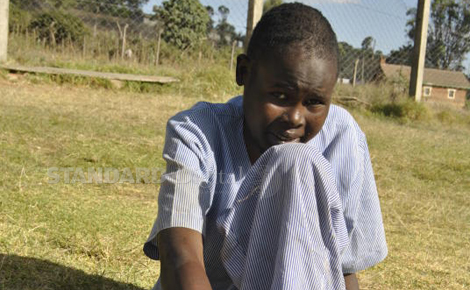×
The Standard e-Paper
Kenya’s Boldest Voice
 |
| 22 year old Kibitany Rotich seated Baringo County Referral Hospital at Kabarnet where he has been admitted to. [PHOTO: KIPSANG JOSEPH] |
BARINGO: The National Council for Persons with Disabilities has rescued a 22-year-old mentally ill man, who had been hidden by his family for 12 years in Baringo County.
Led by NCPWD National Vice Chairperson Caroline Chumba, the team of social development officers stormed the hut where Kibitany Rotich had been hidden by his parents due to the stigma associated with mental illness at Kaptoin village in Kipsaraman, Baringo North.